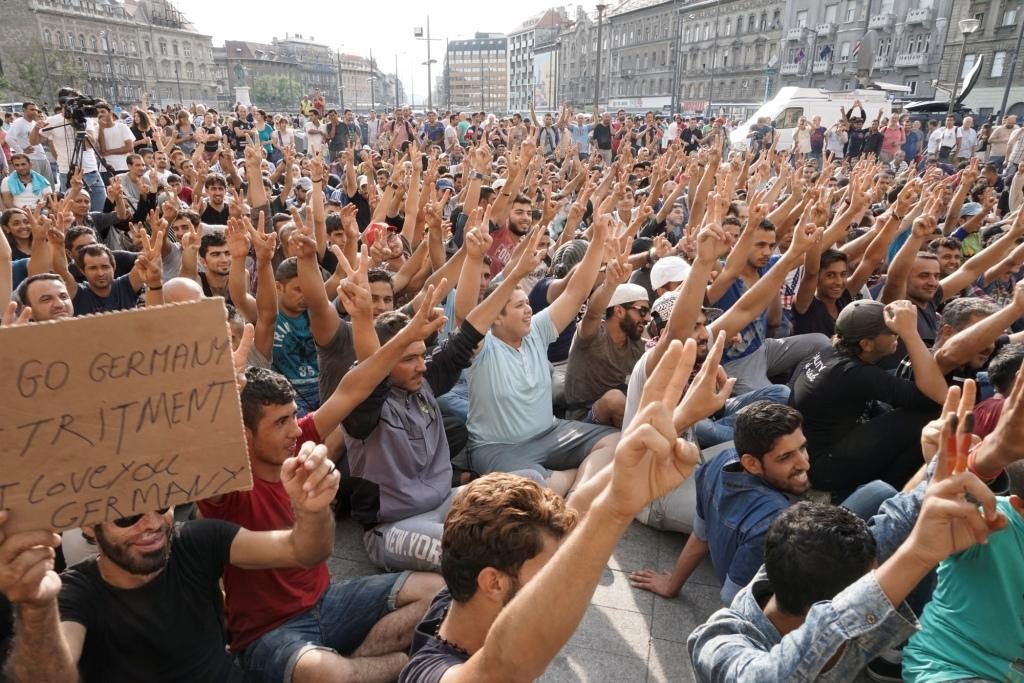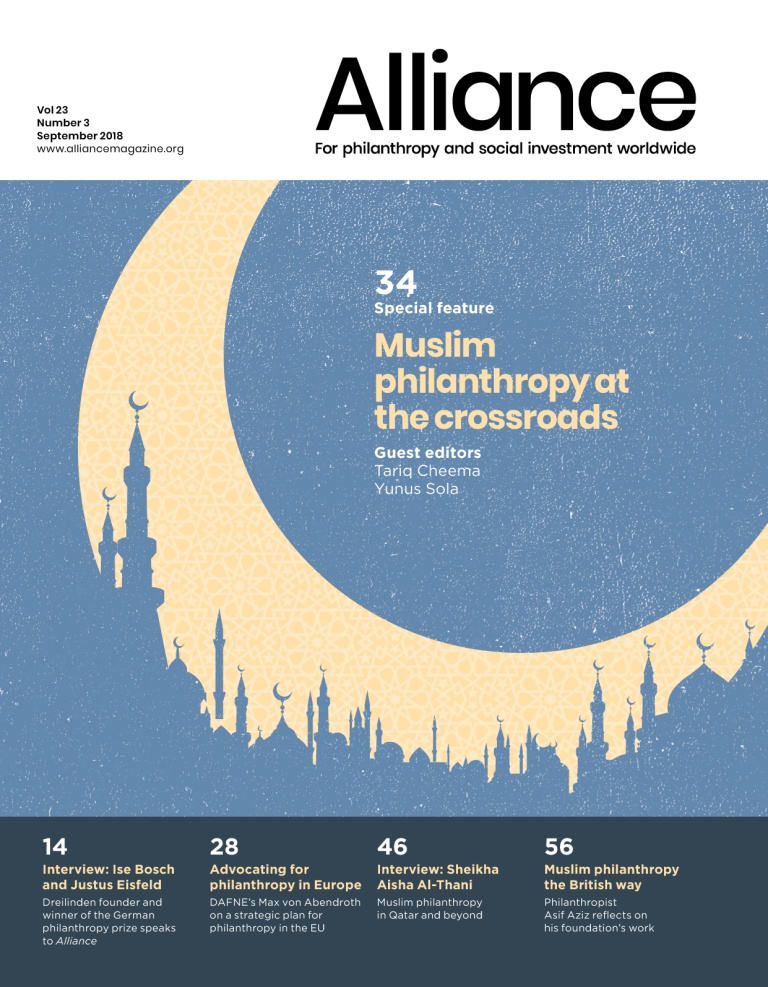A decade ago, Global Dialogue was formed to promote innovation in human rights funding and practice. What progress has it made?
Global Dialogue was formed in 2007 with a clear vision to promote innovation in the human rights movement and to incubate innovative rights-based initiatives. Ten years on, it is a thriving part of the human rights philanthropy infrastructure. We were also the first philanthropy support organization to develop ‘fiscal sponsorship’ and regranting services in the UK. Since our formation, a number of things have become clear to us: the importance of collaboration, the role that philanthropy infrastructure has to play in fostering it and the need to experiment with new approaches to increasingly complex problems.
Back in 2007, philanthropic infrastructure was at an early stage of development. With a handful of other organizations, Global Dialogue has developed both the market and the product.
Early programmes included the Strategic Fund for Turkey, a seven-year sub-granting initiative to support the emerging human rights movement in Turkey at a critical time of transition in the region. Another early project, in 2009, was Ariadne, to promote peer support across borders to strengthen human rights and social change philanthropy, to help funders to work more strategically, and to encourage new funders to enter the field.

Syrian refugees in Budapest Credit: Mstyslav Chernov, Wikimedia
We house six donor-led initiatives, with an even split between those serving the UK and those working internationally. We support funder collaboration on some of the most difficult issues facing progressive funders – whether it is the closing space for civil society, sexual harassment in the human rights movement, or public debates on migration.
The importance of working in concert
It is difficult for organizations working alone to create lasting or structural change – something that is badly needed in this time of profound challenges to human rights and of profound opportunities for equality. The issues involved demand a collaborative and long-term approach. Being part of a network, working group, exchange or alliance enables funders to share intelligence and learn from peers; co-commission research to test assumptions or understand an opportunity better; engage with civil society organizations in a neutral and structured way; and align their grants or pool funds to advance a shared agenda. Housing this kind of initiative in a neutral, third-party philanthropic support organization can give it an independence and agency that enables both long-term strategic collaboration on intransigent problems, and a rapid response to fast-moving issues, sometimes within the same programme. Over the last ten years we’ve developed a set of practices that help funders co-create, test and advance solutions. For example, the Funder’s Initiative for Civil Society brings together 11 international funders and two funder networks in a three-year programme on how to advance practices in closing space philanthropy and coordinate philanthropic responses around the world. It is also raising the voice of the funding community both in defence of philanthropy and in support of civil society.
Incubating new approaches
Alongside our collaboration portfolio we also provide an important R&D function for funders seeking to develop new approaches to critical issues, often involving regranting. For example, in the last two years we’ve incubated IMiX, a communications agency for the UK’s refugee and migration sector, serving as fiscal host for the IMiX team and supporting their work to build regional communications capacity by funding networked communications officer posts in refugee and migrant sector organizations. This is a complex and innovative project, with some big wins, and some big challenges, which will transition out of Global Dialogue this year.
We expect collaboration to evolve to include activists, academics and influencers alongside donors when appropriate, in an effort to share power and find participatory practices of collaboration and grantmaking that better demonstrate our values.
We’ve learned a lot in the last ten years. Back in 2007, philanthropic infrastructure was at an early stage of development. With a handful of other organizations, Global Dialogue has developed both the market and the product – demonstrating the value of infrastructure to funders at the same time as developing our capacity to meet both the needs of funders and the challenges to human rights. Developing and formalizing our hosting offer has been an especially complex task; the models and mechanisms for fiscal sponsorship are well-developed and widely-understood in the US, but they work quite differently under the law of England and Wales. Balancing donor governance at programme level with the legal and fiscal responsibilities of the board can be demanding. And like many grantmakers who work on long-term or structural issues, it’s often difficult to measure our impact. We’re committed to continuing to learn on these and other issues, and will look for opportunities to share that learning with our peers.
The future of collaboration
Philanthropic infrastructure organizations have a critical part to play in fostering collaboration. At Global Dialogue we expect to see more collaboration over the next ten years as philanthropy engages with complex issues requiring an international and intersectional approach, be it migration, equality, civic space, xenophobia or public sector budget cuts which hurt the poorest. We expect these collaborations to be more flexible, enabling alignment of funding across jurisdictions, and involving regranting to test and learn. We expect collaboration to evolve to include activists, academics and influencers alongside donors when appropriate, in an effort to share power and find participatory practices of collaboration and grantmaking that better demonstrate our values. And we expect to develop increasingly sophisticated and secure tools and practices to support, measure and communicate these collaborations, both online and off. We look forward to working with our partners to build a collaborative philanthropic infrastructure that’s equal to the challenges we will doubtless face in the next ten years.
Debbie Pippard is director of programmes, Barrow Cadbury Trust, and chair of trustees, Global Dialogue.
Email d.pippard@barrowcadbury.org.uk
Twitter @debbiepippard
Esther Hughes is executive director of Global Dialogue.
email esther@global-dialogue.eu







Comments (0)